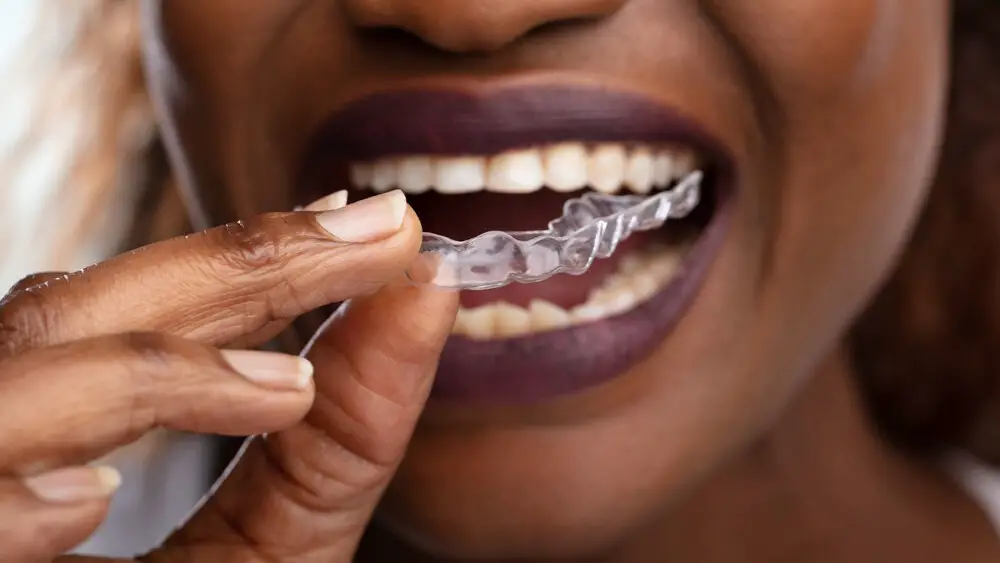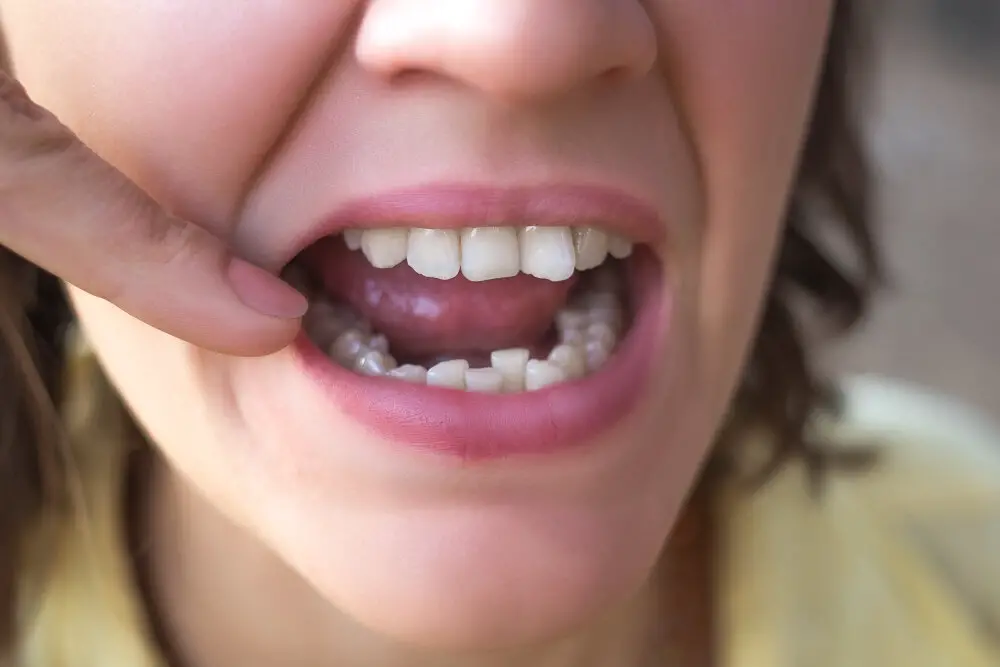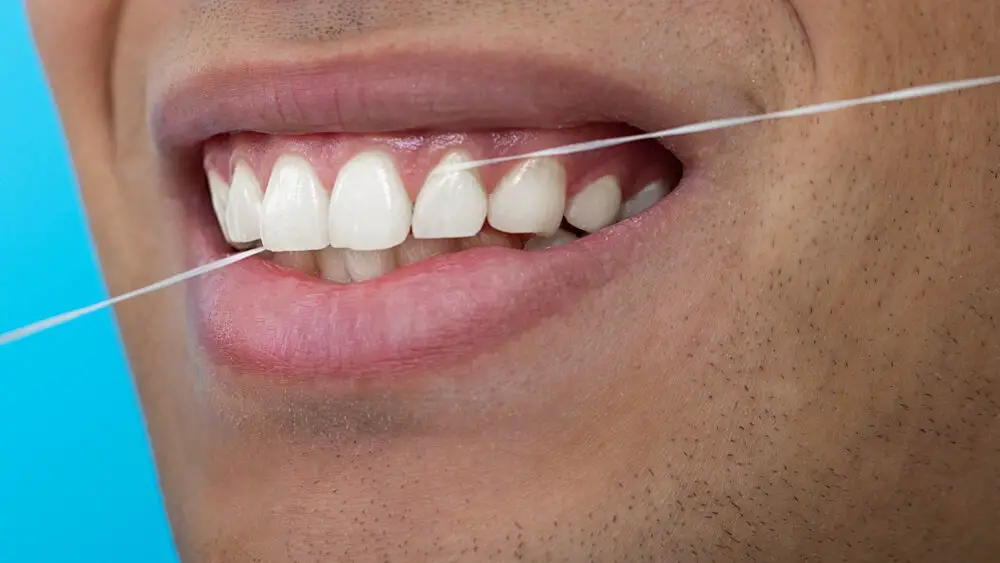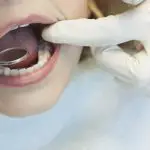Why Sugar Causes Tooth Pain: Understanding the Link Between Sugar Consumption and Dental Sensitivity

The sweet, addictive taste of sugar is a favorite for many of us. But as we indulge in sugary treats, we may be putting our dental health at risk. Sugar consumption has been linked to tooth decay, gum disease, and dental sensitivity, which can cause discomfort and pain. Understanding the link between sugar and dental sensitivity is crucial for maintaining good oral health and preventing tooth pain. Tooth sensitivity can occur when the tooth’s protective layer, known as enamel, is worn down, exposing the sensitive nerves underneath. Sugar consumption plays a significant role in this process as it feeds the bacteria in our mouth, producing acid that erodes the enamel. Over time, this can lead to cavities and tooth decay, making the tooth more sensitive to hot, cold, and sweet stimuli. By learning about the relationship between sugar and tooth sensitivity, we can take control of our dental health and make informed choices about our diet.
Tooth pain and dental sensitivity are common dental problems. Tooth pain is described as a discomfort that can range from mild to severe and can be caused by a variety of factors such as tooth decay, gum disease, or injury. Dental sensitivity is characterized by a sharp pain or discomfort in response to certain stimuli such as hot or cold food and drinks, sweet or sour foods, or even cold air. It can be caused by the exposure of the tooth’s root due to gum recession, enamel erosion, or cracks in the teeth. Sugar consumption can also contribute to tooth pain and dental sensitivity by promoting the growth of bacteria that produce acid, which in turn can lead to tooth decay and erosion of the enamel. Understanding the link between sugar consumption and dental sensitivity can help individuals make better choices for their oral health.
The link between sugar consumption and dental sensitivity is vital to comprehend as it can help prevent various dental ailments. Sugar consumption causes bacteria to thrive in the mouth, which leads to the production of acid that corrodes the enamel. The erosion, in turn, leads to tooth sensitivity and causes pain. This is why it is crucial to limit sugar intake and maintain good oral hygiene. Neglecting to understand the link between sugar consumption and dental sensitivity can lead to tooth decay, gum disease, and other oral health problems. By being aware of the relationship between sugar and dental sensitivity, one can take the necessary precautions to protect their teeth and maintain good oral health.
How Sugar Causes Tooth Pain

Sugar is one of the most common culprits behind tooth pain and sensitivity. When we consume sugary foods and drinks, the bacteria in our mouth feed on these sugars and produce acid as a byproduct. This acid then attacks the enamel on our teeth, causing it to wear away and exposing the sensitive dentin layer underneath. As a result, our teeth become more susceptible to pain and discomfort when exposed to hot, cold, or sweet stimuli. Over time, this can lead to cavities, gum disease, and other oral health problems if left untreated. In addition to causing direct damage to our teeth, sugar can also contribute to tooth pain and sensitivity by promoting the growth of harmful bacteria in our mouth. These bacteria can produce toxins that irritate the gums and lead to inflammation, which can further exacerbate tooth pain and sensitivity. Moreover, sugary foods and drinks can also create an acidic environment in our mouth, which can erode the protective layer of saliva that helps to neutralize harmful bacteria and prevent tooth decay. Therefore, it is important to limit our sugar intake and practice good oral hygiene habits to maintain healthy teeth and gums.
Tooth decay is a gradual process that occurs when the bacteria present in the mouth convert the sugars and carbohydrates from the food we eat into acid. This acid, along with the bacteria and saliva, forms a sticky plaque film that adheres to the teeth, especially around the gum line and in the crevices between the teeth. Over time, the acid produced by the bacteria begins to erode the enamel, which is the protective layer covering the teeth, causing them to weaken and develop cavities. If left untreated, the decay can spread from the enamel to the inner layers of the tooth, leading to pain, sensitivity, and eventually tooth loss. Therefore, it is essential to maintain good oral hygiene habits, limit sugary and acidic foods and drinks, and visit the dentist regularly to prevent tooth decay and maintain optimal dental health.
Sugar plays a crucial role in tooth decay, as it feeds the harmful bacteria that produce acid in the mouth. When teeth are exposed to sugar, the bacteria in the mouth metabolize it, producing acid that dissolves the enamel on the surface of the teeth. Over time, this acid erosion can lead to cavities, gum disease, and tooth sensitivity. The frequency and amount of sugar consumed can have a significant impact on dental health, making it important to limit sugar intake and practice good oral hygiene habits, such as brushing twice a day, flossing, and visiting the dentist regularly. By reducing sugar consumption and taking care of teeth, individuals can prevent tooth decay and maintain healthy, pain-free smiles.
Bacteria are single-celled microorganisms that can cause a range of health problems, including dental decay. When we eat sugary foods, these bacteria feed on the sugars and produce acid as a byproduct. This acid can then erode the protective enamel on our teeth, leading to cavities and dental sensitivity. The more sugar we consume, the more bacteria we create, and the more acid is produced, exacerbating these issues. It’s important to maintain good oral hygiene habits and limit our sugar intake to prevent damage to our teeth and overall oral health.
Types of Sugars that Cause Tooth Pain

Tooth pain is often caused by the consumption of sugary foods and drinks. While there are many types of sugars that can lead to tooth pain, there are certain ones that are particularly problematic. One of the most common types of sugar that causes tooth pain is sucrose, which is found in many foods and drinks, including candy, soda, and juice. Sucrose is a type of carbohydrate that is broken down by bacteria in the mouth, producing acid that can erode tooth enamel and cause cavities. This acid can also irritate the nerves in the teeth, leading to sensitivity and pain. Another type of sugar that can cause tooth pain is fructose, which is found naturally in fruits and vegetables, as well as in many processed foods and drinks. Fructose is also broken down by bacteria in the mouth and can lead to the production of acid that can wear away tooth enamel. In addition, fructose can also cause inflammation in the body, which can exacerbate tooth pain and sensitivity. To reduce the risk of tooth pain caused by fructose, it is important to limit consumption of sugary foods and drinks and to maintain good oral hygiene habits, such as brushing and flossing regularly.
There are various types of sugars, and their effects on teeth differ depending on their chemical structure. For instance, sucrose (table sugar) is the primary culprit behind tooth decay as it sticks to the teeth and is converted into acid by bacteria in the mouth. Fructose, found in fruits and honey, is less likely to cause cavities because it is less sticky and is metabolized differently. However, excessive consumption of fructose can still lead to tooth decay since it can be converted into acid by bacteria in the mouth. Glucose, found in bread, pasta, and rice, is less harmful to teeth than sucrose, but it can still contribute to cavities if consumed in excess. Lactose, found in milk and other dairy products, is less likely to cause tooth decay since it requires different bacteria to break it down. Overall, limiting sugar intake and practicing good oral hygiene are necessary to prevent tooth decay and dental sensitivity.
Sugar is a type of carbohydrate that comes in two forms: natural and added. Natural sugars are found in fruits, vegetables, and dairy products while added sugars are put into processed foods and drinks during manufacturing or preparation. Natural sugars, such as fructose, glucose, and lactose, are broken down and absorbed by the body at a slower rate than added sugars, such as high fructose corn syrup and sucrose. This slower absorption rate is beneficial because it helps prevent spikes in blood sugar levels. Conversely, added sugars can cause blood sugar levels to spike and lead to various health issues, including tooth decay and sensitivity. Added sugars also lack the nutritional value found in natural sugars and can contribute to weight gain and obesity.
High fructose corn syrup (HFCS) is a common sweetener that is found in many processed foods and beverages. It is often used as a substitute for sugar because it is less expensive and sweeter. However, HFCS has been linked to a number of negative health effects, including dental problems. When HFCS is consumed, it can lead to an increase in the production of acid in the mouth. This acid can erode the enamel on the teeth, leading to tooth decay and sensitivity. In addition, HFCS can also contribute to the growth of harmful bacteria in the mouth, which can also lead to dental problems. Overall, it is important to limit consumption of HFCS and other sugary substances in order to maintain good dental health.
Other Factors that Contribute to Tooth Pain

While sugar consumption is a major contributor to tooth pain, there are other factors that can also cause dental sensitivity. One such factor is teeth grinding or clenching, which can occur during sleep or when under stress. The constant pressure and friction can cause the enamel on the teeth to wear away, exposing the sensitive dentin layer underneath. This can lead to pain and discomfort when eating or drinking hot or cold foods and beverages. Wearing a custom-fitted mouthguard while sleeping or during stressful situations can help prevent further damage and alleviate tooth pain caused by grinding or clenching. Another factor that can contribute to tooth pain is gum recession. When the gums recede, the roots of the teeth become exposed, which can be sensitive to hot, cold, and sweet foods and beverages. Gum recession can be caused by a variety of factors, including gum disease, brushing too hard, and aging. Proper oral hygiene, including brushing twice a day, flossing daily, and regular dental check-ups can help prevent gum disease and reduce the risk of gum recession. In some cases, gum grafting surgery may be necessary to cover the exposed roots and reduce tooth sensitivity.
Acidic foods and beverages are major culprits in causing tooth pain and dental sensitivity. The high levels of acidity in these foods and beverages can erode the enamel on your teeth, leading to tooth decay and cavities. Examples of acidic foods include citrus fruits, tomatoes, and vinegar-based dressings. Common acidic beverages include soda, sports drinks, and fruit juices. When consumed regularly and in excess, these acidic substances can lead to the weakening of the protective layer on your teeth, making them more susceptible to tooth pain and sensitivity. It is important to be mindful of your consumption of acidic foods and beverages, and to take steps to protect your teeth, such as brushing and flossing regularly, and using fluoride toothpaste.
Poor oral hygiene is a major contributing factor to tooth pain and sensitivity, which can be exacerbated by consuming high amounts of sugar. Neglecting to brush and floss regularly can lead to the buildup of plaque and bacteria on the teeth, which can cause tooth decay and gum disease. When sugar is consumed, it feeds the bacteria in the mouth, causing them to produce acids that attack the enamel of the teeth, leading to cavities and dental sensitivity. Additionally, consuming sugary drinks and snacks throughout the day can prolong the exposure of teeth to sugar and increase the risk of tooth decay. Therefore, maintaining good oral hygiene practices and limiting sugar intake can help prevent tooth pain and promote overall dental health.
Grinding teeth and clenching jaws, also known as bruxism, is a common condition that affects millions of people worldwide. This condition can occur during the day or at night while sleeping, and can be caused by a variety of factors such as stress, anxiety, or an abnormal bite. Bruxism can lead to a host of problems, including tooth wear, jaw pain, headaches, and even tooth fractures in severe cases. The excessive force placed on the teeth and jaws during bruxism can also exacerbate dental sensitivity, making it more difficult to enjoy sweet treats without experiencing discomfort. It is important to address bruxism with your dentist or healthcare provider to prevent further damage and ensure optimal oral health.
Preventing Tooth Pain Caused by Sugar

Tooth pain caused by sugar intake is a common dental problem that affects people of all ages. The bacteria present in our mouth feed on the sugar we consume, producing acid that attacks the enamel of our teeth, leading to tooth decay and sensitivity. To prevent tooth pain caused by sugar, it is essential to adopt good oral hygiene habits, such as brushing your teeth twice a day with fluoride toothpaste and flossing daily. Additionally, reducing your sugar intake and avoiding sugary drinks and snacks can significantly reduce your risk of developing tooth decay and sensitivity. Incorporating a balanced diet rich in fruits, vegetables, and calcium-rich foods can also help promote healthy teeth and gums. Regular dental check-ups and cleanings are also crucial in preventing tooth pain caused by sugar. Your dentist can detect any dental issues early on and provide appropriate treatment before they worsen. They can also provide tips on how to maintain good oral hygiene and recommend products that can help alleviate tooth sensitivity caused by sugar. By taking care of your teeth and reducing your sugar intake, you can prevent tooth pain caused by sugar and maintain a healthy, beautiful smile for years to come.
Reducing sugar intake is crucial not only for maintaining good oral hygiene but also for overall health. One of the best ways to reduce sugar intake is to read food labels carefully and choose products with less added sugar. Another tip is to replace sugary drinks with water, herbal tea, or other low-sugar beverages. Eating a balanced diet with plenty of fruits, vegetables, and whole grains can also help reduce sugar cravings. Additionally, it is essential to be mindful of portion sizes and avoid sugary snacks or desserts as much as possible. By making small changes to our diet, we can significantly reduce our sugar intake and improve our dental and overall health.
Regular brushing and flossing are essential for maintaining good oral hygiene and preventing dental problems. Brushing twice a day and flossing once a day can help remove plaque and food particles from the teeth and gums, preventing the buildup of harmful bacteria that can lead to tooth decay, gum disease, and other oral health issues. Additionally, brushing and flossing can help prevent tooth sensitivity caused by sugar consumption, as it removes the sugar and acids that can eat away at the enamel of the teeth. By making brushing and flossing a regular part of your daily routine, you can keep your teeth healthy, strong, and free from pain and sensitivity.
Using fluoride toothpaste and mouthwash is essential in maintaining good oral hygiene and reducing the risk of tooth decay. Fluoride is a mineral that helps to strengthen tooth enamel and protect teeth from acid attacks caused by sugar and other carbohydrates. Toothpaste with fluoride helps to remove plaque and prevent the buildup of harmful bacteria. Additionally, using fluoride mouthwash after brushing can help to further protect teeth and freshen breath. It is important to use these products regularly and as directed by a dental professional to maintain optimal oral health. By incorporating fluoride toothpaste and mouthwash into your daily routine, you can help to prevent tooth pain and sensitivity caused by sugar consumption.
Seeking professional dental care is crucial for those who experience tooth pain caused by sugar consumption. While avoiding sugary foods and drinks is a good start, it is not enough to keep dental sensitivity at bay. A dentist can provide a thorough examination and determine the underlying cause of the sensitivity, such as tooth decay or gum disease. They can also offer treatments such as fluoride varnish or dental bonding to help protect and strengthen the teeth. Regular dental check-ups and cleanings can also prevent further damage and maintain good oral health. Ignoring tooth pain caused by sugar consumption can lead to more serious dental issues, making professional dental care essential for overall well-being.
Sugar consumption has become a prevalent issue in the modern era, causing several health problems, including dental sensitivity. Dental sensitivity or tooth pain is a common problem that affects many individuals worldwide. It is often caused by the consumption of sugary foods and drinks, which lead to the formation of cavities and tooth decay. The sugar in these foods and drinks reacts with the bacteria in the mouth to form acid, which erodes the enamel, leading to tooth sensitivity. This acid also causes inflammation of the gums, which can cause further tooth pain. Therefore, it is essential to limit sugar consumption and maintain good oral hygiene practices to prevent dental sensitivity and other dental problems.
It’s essential to take proactive steps to prevent tooth pain caused by sugar consumption as it can impact your overall oral health. Sugar is a primary cause of tooth decay, which can lead to cavities, gum disease, and even tooth loss. When sugar is consumed, it feeds the bacteria in our mouths, producing acid that erodes the enamel on our teeth, leading to tooth sensitivity and pain. Thus, reducing sugar intake and maintaining proper oral hygiene practices such as brushing twice a day, flossing, and visiting the dentist regularly can help prevent tooth pain caused by sugar and keep your teeth healthy and strong.
Maintaining good oral hygiene is crucial to prevent tooth pain and dental sensitivity caused by sugar consumption. Brushing twice a day, flossing, and using mouthwash are essential habits to keep your teeth and gums healthy. It is also important to limit your sugar intake and avoid sugary drinks and snacks. Regular dental check-ups can help detect and treat any dental issues before they become more severe and painful. Seeking dental care when needed is essential to prevent tooth decay, gum disease, and other dental problems. By taking care of your oral health, you can enjoy a healthy, pain-free smile for years to come. Remember, prevention is key, so don’t neglect your dental health and seek professional help when necessary.
Conclusion

In conclusion, sugar consumption can cause tooth pain and dental sensitivity as it feeds the harmful bacteria in our mouths, leading to the production of acid that erodes tooth enamel. This process can eventually lead to cavities and other dental problems. Understanding the link between sugar and dental health is essential for maintaining healthy teeth and gums. It’s crucial to limit sugar intake and practice good oral hygiene habits, such as regular brushing and flossing, to prevent tooth pain and sensitivity. By taking care of our teeth, we can ensure that we have a healthy and beautiful smile for years to come.






